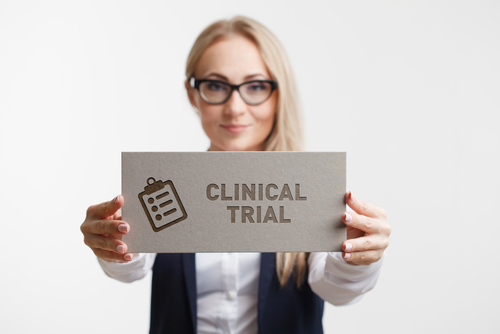Updated results from two clinical trials support the potential of AFM13, an investigational immunotherapy being developed by Affimed, in combination with Merck‘s Keytruda (pembrolizumab) for patients with Hodgkin’s lymphoma, or as a single agent for people with CD30-positive skin lymphomas who failed standard therapies.
The data were shared in an oral and a poster presentation at the 15th International Conference on Malignant Lymphoma (ICML), which took place June 18–22 in Lugano, Switzerland.
The studies were titled “Investigating the Safety and Preliminary Efficacy of AFM13 Plus Pembrolizumab in Patients with Relapsed/Refractory Lymphoma After Brentuximab Vendotin Failure” and “Clinical and Biological Evaluation of the Novel CD30/CD16A Tetravalent Bispecific Antibody (AFM13) in Relapsed or Refractory CD30-Positive Lymphoma with Cutaneous Presentation: a Biomarker Phase IB/IIA Study (NCT03192202).“
“The results of the completed Phase 1b study of AFM13 in combination with pembrolizumab [Keytruda] in Hodgkin lymphoma and of Columbia University’s study of AFM13 in patients with relapsed or refractory CD30-positive lymphoma with cutaneous presentation substantiate the potential of AFM13 to make a difference in the lives of patients with limited to no treatment options,” Leila Alland, PhD, Affimed’s chief medical officer, said in a press release.
AFM13 is a recombinant, or lab-made antibody that helps the immune system detect and fight tumor cells. It works as an “innate cell engager” because it targets CD30 on tumor cells, and CD16A on Natural Killer (NK) cells of our innate immune system.
By binding both surface molecules, AFM13 is expected to redirect and activate NK cells to destroy CD30-positive malignancies, both by killing tumor cells themselves and by stimulating anti-tumor T-cells to do so.
One of the updates presented was the final results of a completed Phase 1b dose escalation study (NCT02665650) that evaluated the use of AFM13 plus Keytruda as a salvage therapy for Hodgkin’s lymphoma that reappeared after relapsing or resisting (refractory) standard therapies, including Seattle Genetics‘ Adcetris (brentuximab vedotin).
Participants received increasing doses of AFM13 intravenously for up to 25 weeks, and a fixed dose of Keytruda for up to 52 weeks.
Data from 30 patients showed the combo was well-tolerated, with no new or worsening safety events beyond those already known for each agent alone. Adverse events (side effects) reported mostly were mild-to-moderate, most commonly infusion-related reactions (87%), rash (30%), nausea (23%), fever (23%), and diarrhea (20%).
Of the 24 patients who were treated with the highest dose, 88% had a positive response, with 46% of them achieving a complete response (a complete disappearance of all target lesions to undetectable levels). This was nearly twice as high compared with complete response rates documented for single therapy with Keytruda (22% to 25%).
Estimated survival without disease progression (progression-freesurvival) was 78% and 45% at six and 12 months of treatment, respectively.
Response rates were high in patients who were refractory to initial therapy with Adcetris, with 11 of 13 responding positively to the combo — leading to an overall response rate of 85% and complete response rate of 46%.
A deepening of responses was noted over time for multiple patients. The results also showed that patients who did not choose a transplant before AFM13-Keytruda were able to do so after having a positive response to the combo.
“Despite advances in the treatment of patients with Hodgkin lymphoma, there remains a need for new treatment options for patients who have failed multiple lines of treatment,” Ansell said.
“I am encouraged by the results achieved in this study, which showed that the combination of AFM13 and pembrolizumab is well-tolerated and achieved high and deep response rates even in patients who were refractory to brentuximab vedotin,” she said.
More AFM13 results
Affimed also shared new, preliminary data from an ongoing Phase 1b/2a study (NCT03192202) evaluating the ability of AFM13 at facilitating and redirecting immune NK cells to eliminate CD30-positive cutaneous lymphoma and, by inference, other affected organs.
Patients were distributed across three regimens: 1.5 mg/kg weekly, 7 mg/kg weekly, and 7 mg/kg continuous infusions over five days weekly, for eight weeks. Each group consisted of three patients. Response rates and immune cell levels within the tumor and in the bloodstream were assessed at week 11 of each cycle. A second cycle of therapy was administered if there was no disease progression.
Data from nine patients, with a median of four prior therapies, showed that AFM13 was well-tolerated and resulted in an overall response rate of 50%, which is considered high for this heavily pretreated population. One patient had a complete response and four patients had a partial reduction in tumor lesions.
This included two of five patients who had transformed mycosis fungoides (T-MF), a particularly hard-to-treat type of cutaneous lymphoma that typically grows fast.
Analysis of tumor biopsies showed increased numbers and activation of NK cells — immune cells that can directly and indirectly induce tumor killing — both before and during treatment among responders to AFM13, as opposed to non-responders.
Consistent with this effect, markers of NK cell-mediated tumor killing also went up in responders and there was a reduction in the amount of NK cells and regulatory T-cells in the blood.
Overall, the data support the potential of AFM13 as a novel immunotherapy for CD30-expressing lymphomas.
Encouraged by these preliminary results, Affimed is planning a Phase 2, international study for refractory peripheral T-cell lymphoma (PTCL) and T-MF. The trial’s aim is to provide data in support of future regulatory submissions of AFM13.
“We look forward to advancing our innate cell engagers in future clinical studies, including our registration-directed study of AFM13 in relapsed and refractory peripheral T cell lymphoma and transformed mycosis fungoides,” Alland said.
Other clinical trials evaluating AFM13 for Hodgkin’s lymphoma have been completed or are underway.


